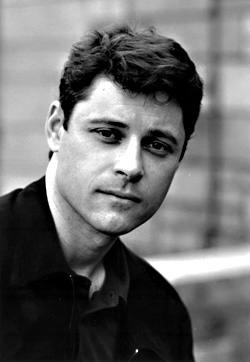It may seem like a cheap, pulp-crime gimmick to begin a novel with the scene of unspeakable carnage that closes the story, with blood-spattered walls and entrails and dismembered bodies, but when you’re retelling one of the most famous epics of Western history, you’re not likely to be taken to the woodshed for giving away the ending. The Suitors is the debut novel from Ben Ehrenreich—son of famous lefty journalist Barbara and writer for Seattle Weekly‘s siblings The Village Voice and L.A. Weekly (among others)—and it’s a loose reworking of The Odyssey, Homer’s epic tale about the long-lost Greek warrior trying to return home to his wife. Ehrenreich devotes little time to the wanderings of his (anti)hero, Payne, who is cast ashore on a concrete island beside a tepid swimming pool, where he guzzles gin and browns in the sun. Instead, he turns his attention to the suitors back home, a dissolute crew of nobodies once conscripted by Payne into a motley army, now leaderless and vying to win his wife, Penny (aka Odysseus’ Penelope).
But the familiar plot—hero vanishes, suitors become bolder in their pursuit of his lady love, hero finally returns for some Kill Bill–caliber bloodletting—isn’t why The Suitors is worth reading. What’s compelling is the way in which Ehrenreich evokes a sense of decay and destruction, of a decadent empire in collapse—a hybrid of antiquity and our own contemporary America. The world up for grabs is oddly timeless, moat-surrounded castles near disintegrating motels, lambs’ brains and calves’ heads washed down with cracked tumblers of scotch, and neon signs illuminating the night (though telephones haven’t yet been invented).
The Suitors is a strange fable, one with shades of dusty, philosophical Tom Robbins and garish, gory Oliver Stone. Yet Ehrenreich’s writing is wonderfully languorous, glorifying both the profound (“It is a small step from fearing your death in every which way to wishing it”) and the banal (“He can sing still, but without music to cushion them, his words rattle and clank across the threshold of his lips”). In the end, he draws a curtain over the inevitable massacre, sparing us the sight of the empire’s violent death throes. If only we were that lucky in real life.







